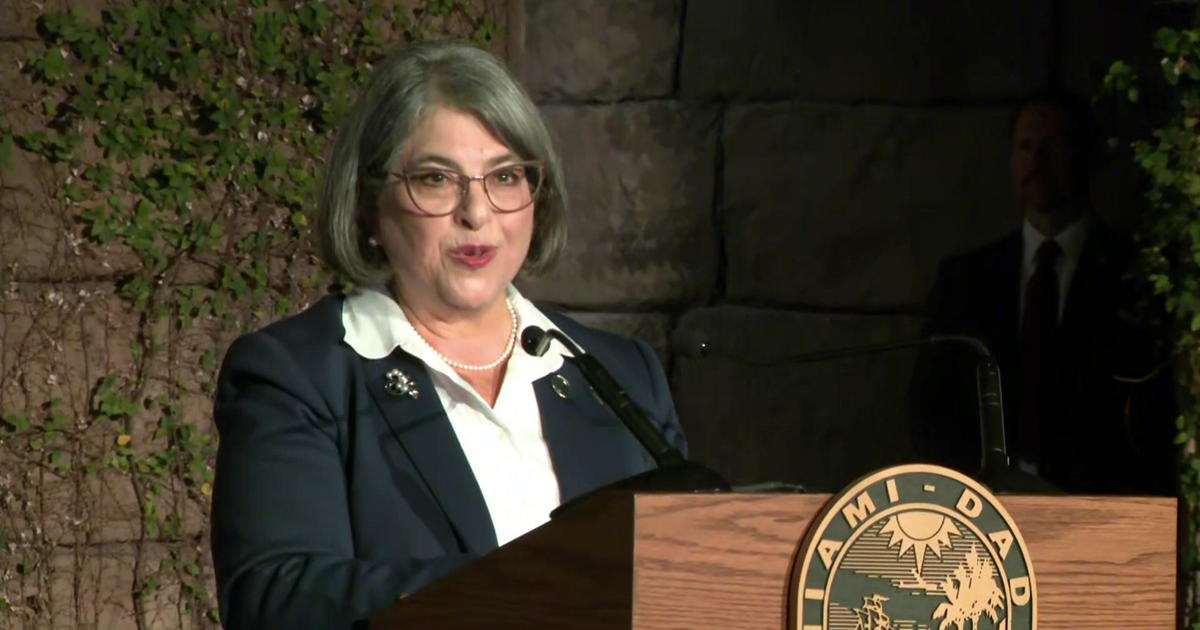Miami Heat is still confident despite loss in Game 1 of NBA Finals
Despite its perilous position, the Heat showed no signs of panic. Butler said some of his teammates had watched “Spider-Man: Across the Spider-Verse” to kill time during the two-day break between games, and he was planning to visit an escape room Saturday night.
Miami, it seemed, was doing everything it could to avoid dwelling on a Game 1 in which it shot poorly from outside, struggled to get to the basket and had few answers for Jokic’s triple-double exploits and Jamal Murray’s silky shooting — hence the Five Stairsteps’ soothing promise of better days ahead and walks “in the rays of a beautiful sun.”
“We’re okay,” Butler said. “We really are. We are very calm. We are very collected. We have so much confidence still. It’s not going anywhere. We’re going to believe in one another — always, no matter what, home or away. We’re still going to get four [wins].”
But trailing in a series is new territory for Miami, which is trying to become the first No. 8 seed to win the NBA title. Thanks to Game 1 victories over the Milwaukee Bucks, New York Knicks and Boston Celtics, the Heat was in control for much of its unexpected run to the Finals. Now, it must launch a comeback bid against the rolling Nuggets, who are 9-0 with an 11.9-point average margin of victory at home in the playoffs.
Denver presents several new challenges for Miami. Jokic is the best offensive weapon the Heat has faced in this run, and he was poised and ruthlessly effective in his Finals debut. Though Miami survived Milwaukee’s Jrue Holiday and New York’s Jalen Brunson, Murray is a tougher backcourt cover because of his dynamic outside shooting and savvy two-man game with Jokic. And after Bucks forward Giannis Antetokounmpo suffered an injury in the first round, the Heat hasn’t had to deal with a front line as big and versatile as Jokic, Aaron Gordon and Michael Porter Jr.
More than anything, though, Miami must adjust to Denver’s ball movement and ability to execute offensively in the fourth quarter after facing Eastern Conference opponents whose attacks often fizzled in late-game situations. Entering Game 2, the Nuggets’ 119.2 offensive rating in the playoffs tops that of any of the past 10 champions during their postseason runs.
The Heat’s hopes of knotting this series will rely heavily on its ability to use quality outside shooting to overcome the Nuggets’ size advantage. This postseason, Miami is 7-3 when it shoots better than 35 percent on three-pointers and 5-2 when it makes at least 15 three-pointers. In Game 1, the Heat shot 13 for 39 from deep and Martin, Max Strus and Duncan Robinson combined to shoot 2 for 23 from the field.
“Shooters need clarity and a great deal of confidence,” Coach Erik Spoelstra said. “The coach is telling them to shoot it. I’d rather get the volume up, and we’ll play the percentages. When you see a bunch of reds in a row [in roulette], I’m one of those guys [that says], ‘Let’s double down, and you’re going to get a black.’ Those guys have proven time and time again they are ignitable.”
Butler endured a forgettable Game 1 in which he needed 14 shots to get to 13 points, his lowest-scoring performance of this playoff run. And for the first time since Oct. 21, he didn’t attempt a free throw.
Miami’s fate is intertwined with its franchise player’s ability to fill it up: The Heat is 5-0 when Butler reaches 30 points during these playoffs and 1-3 when he is held under 20. Even so, Butler said he wouldn’t force the issue against a Denver defense that has paid him extra attention.
“I’m still playing the game the right way,” he said. “It’s not being passive — it’s getting my guys involved. Whenever they make shots, my job is a lot easier.”
Miami will return home for Wednesday’s Game 3 and Friday’s Game 4, but getting a split in Denver would be crucial to its upset bid. The Nuggets claimed a 2-0 series lead against the Minnesota Timberwolves, Phoenix Suns and Los Angeles Lakers before emphatically defeating all three to reach the Finals.
For its part, Denver hardly sounded satisfied by a Game 1 victory in which it was rarely threatened. Coach Michael Malone noted that his team had conceded too many open three-pointers, played “poor” pick-and-roll defense and lost its focus a bit in the fourth quarter.
“I told our players today: Don’t read the paper; don’t listen to the folks on the radio and TV who are saying that this series is over and that we’ve done something,” Malone said. “We haven’t done a damn thing. The reason I told our players I was excited this morning is because we won Game 1 and we didn’t play well. There’s so many things we can do better.”

:no_upscale()/cdn.vox-cdn.com/uploads/chorus_image/image/72731762/1243875973.0.jpg)

